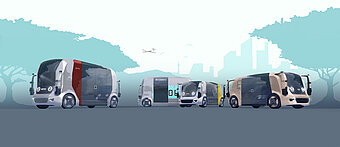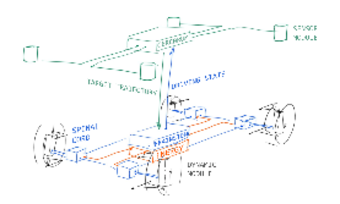

In the UNICARagil project, modular concepts for automated driving are being researched for all areas of the vehicle. The project brings together 16 universities and companies at ten different locations in Germany to conduct interdisciplinary research and development. The modular vehicle design should make it possible to flexibly construct different types of vehicles. In UNICARagil, a family vehicle (autoElf), a cab (autoTAXI), a shuttle (autoShuttle) and a delivery vehicle (autoCargo) are being constructed on the basis of common modules.

Within the project scope, the IDA is researching new methods for securing the functional safety requirements in distributed E/E architectures. The focus is on the underlying technical requirements with respect to the timing behavior of software components as well as their communication. The steadily growing complexity of such systems makes their verification considerably more difficult and is to be simplified as well as automated by appropriate techniques and analysis procedures to be developed.
Thereby, the dependency analysis [7] serves as the basis for testing critical dependencies with regard to the required ASILs (Automotive Safety Integrity Levels) of the timing characteristics of software components against their certification standards. Thus, a critical component must not be dependent on other components with lower ASIL certification. This applies to the execution of software components on shared execution resources, as well as their communication over a shared network. In addition, cross-component propagation of dependencies must be at least limited.
In order to be able to still guarantee this requirements in complex automotive systems and to limit in particular cross-component dependencies, different techniques have been developed:
The following people are currently involved in the UNICARagil project:
Kai-Björn Gemlau